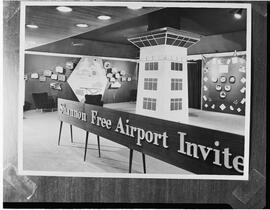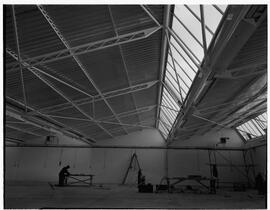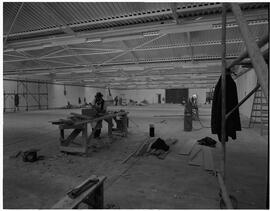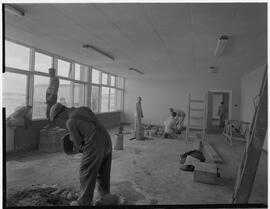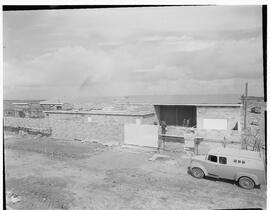Black and white negative of Shannon Shamrock Hotel at Bunratty, featuring an interior shot of the lounge. Negative missing.
Sans titreBlack and white negative of a display about Shannon Airport in London. Envelope notes the initials R.B.
Sans titreBlack and white negative of the interior of the new factory at Development Site. Envelope notes the initials T.J.C.
Sans titreBlack and white negative of the interior of the new factory at Development Site, featuring machinery pieces on the ground and an employee at a workstation with tools. Envelope notes the initials T.J.C.
Sans titreBlack and white negative of the internior office block under construction at the new factory at the Development Site.Envelope notes the initials T.J.C.
Sans titreBlack and white negative of the yard at the new factory at the Development Site. Envelope notes the initials T.J.C.
Sans titreBlack and white negative of a group of passengers at a plane. Negative missing.
Sans titreBlack and white negative of Chef William Ryan with burning ice cream. Negative missing.
Sans titreBlack and white negative of Miss Allen and a group of travelers from North Carolina, United States. Negative missing.
Sans titreBlack and white negative of Miss Sheila A. Morgan and Mr Brian K. Sheehy. Negative missing.
Sans titre